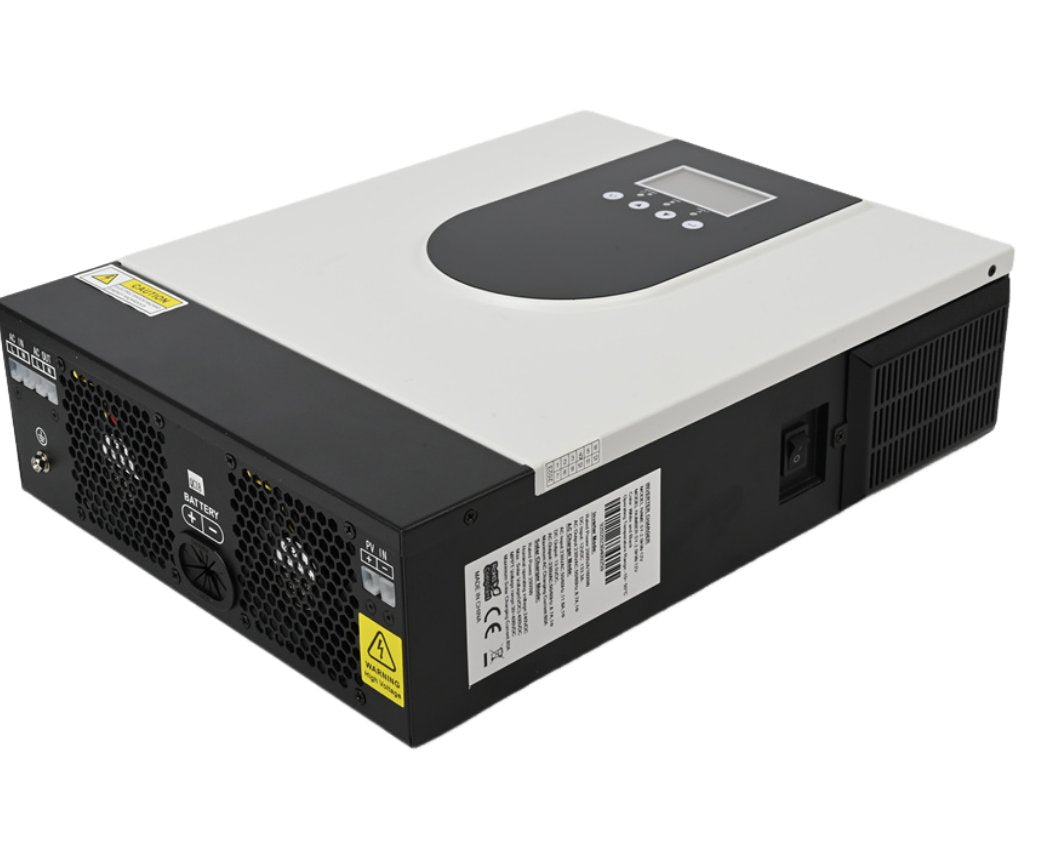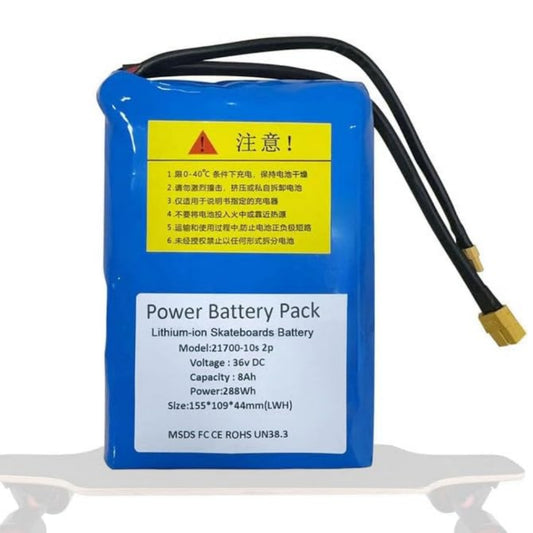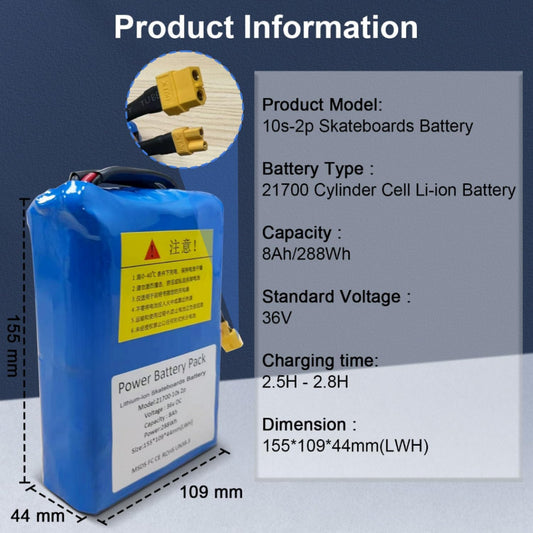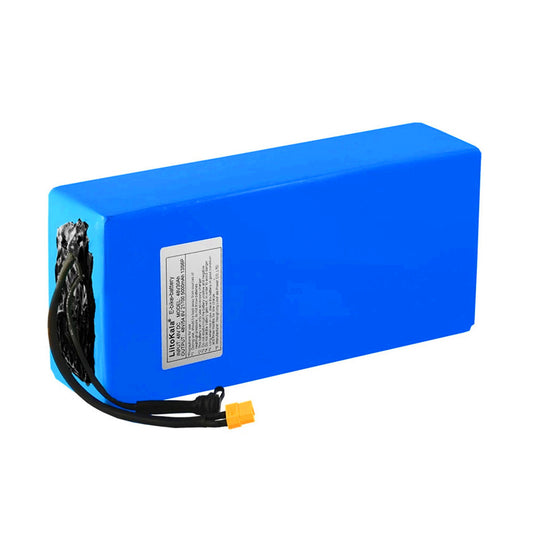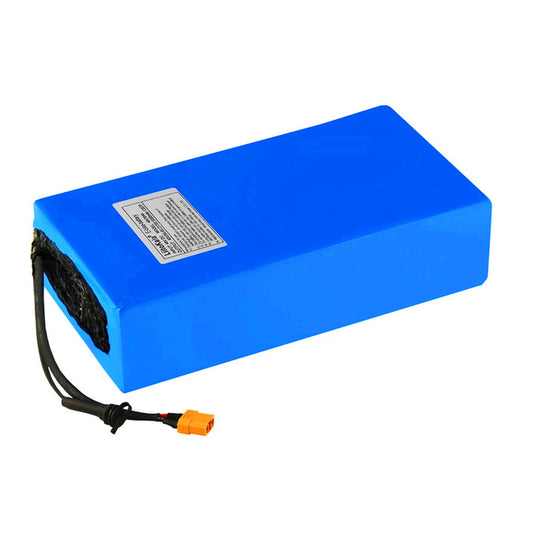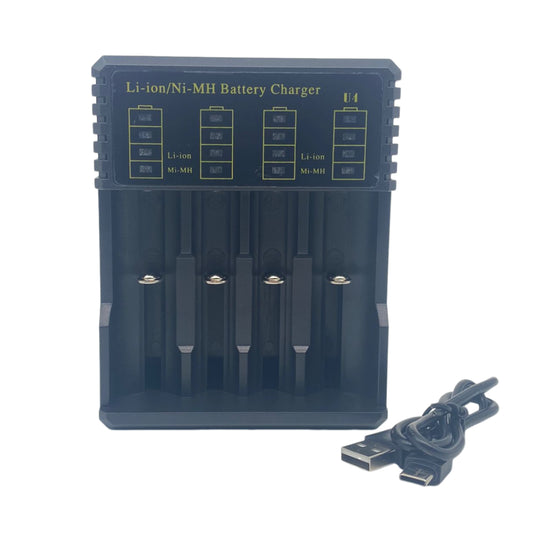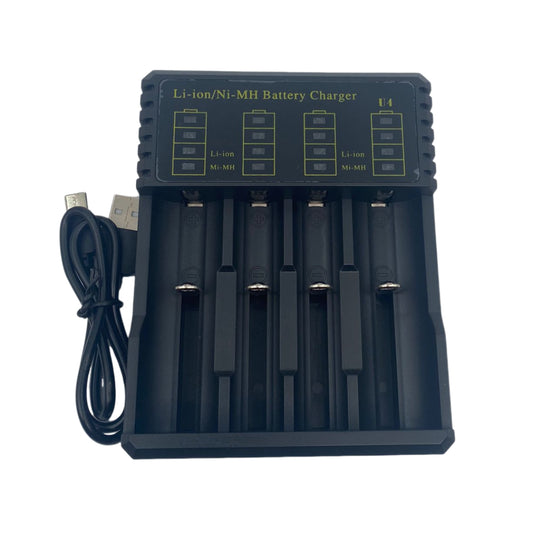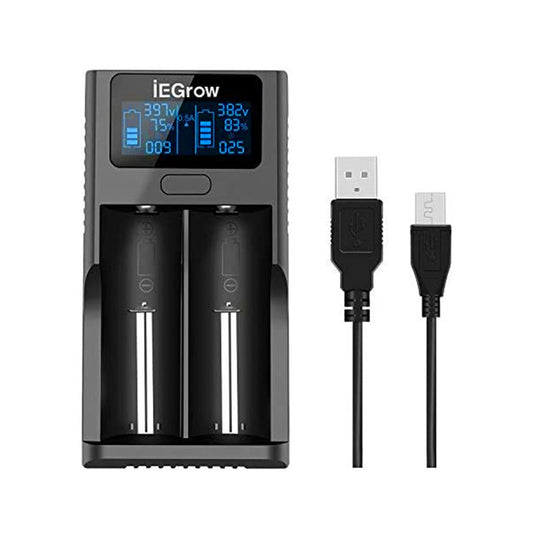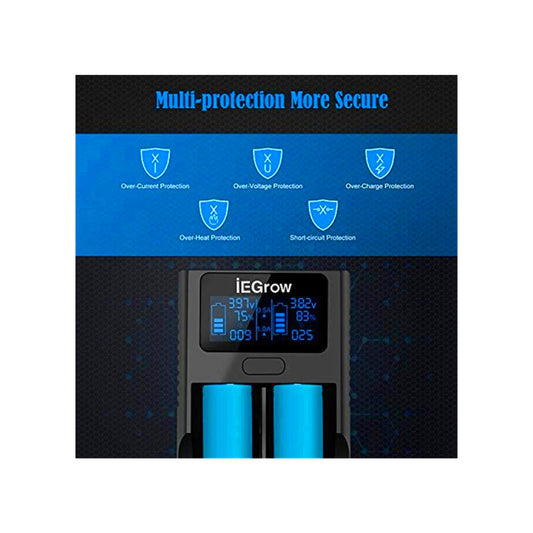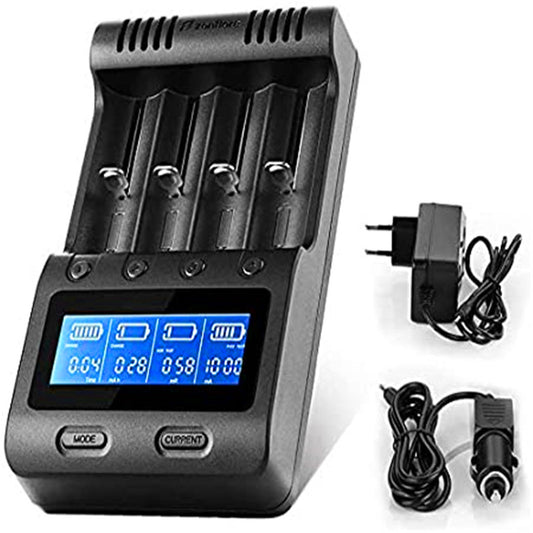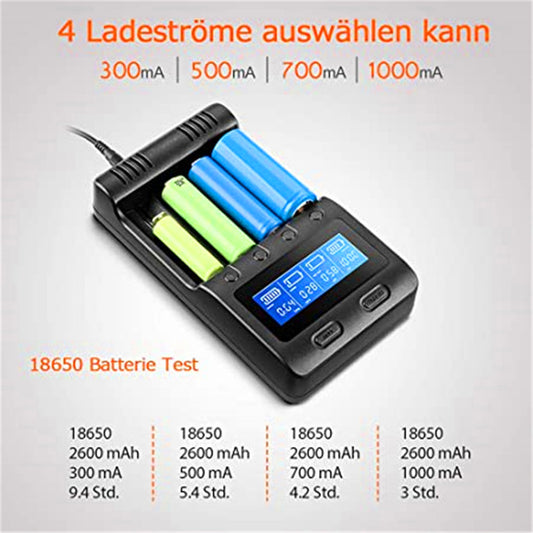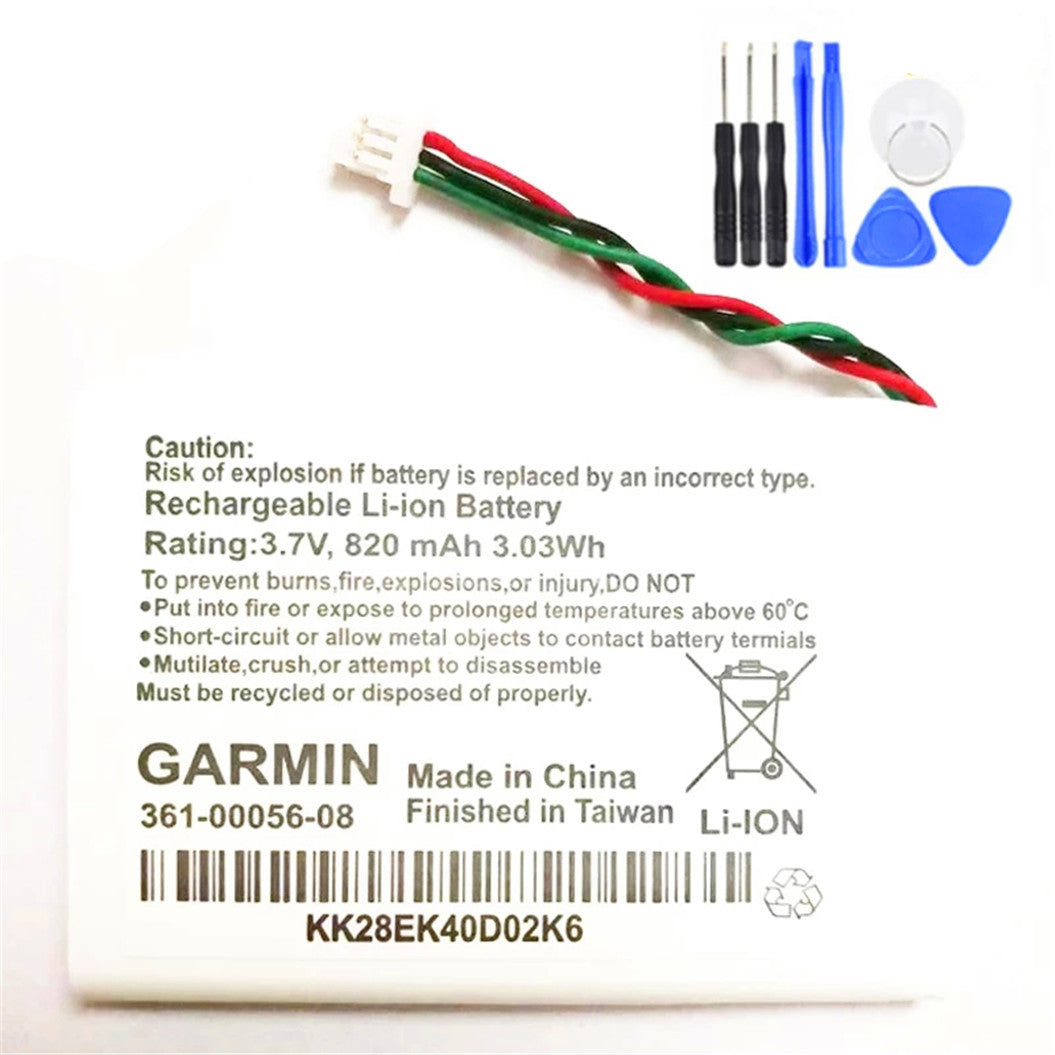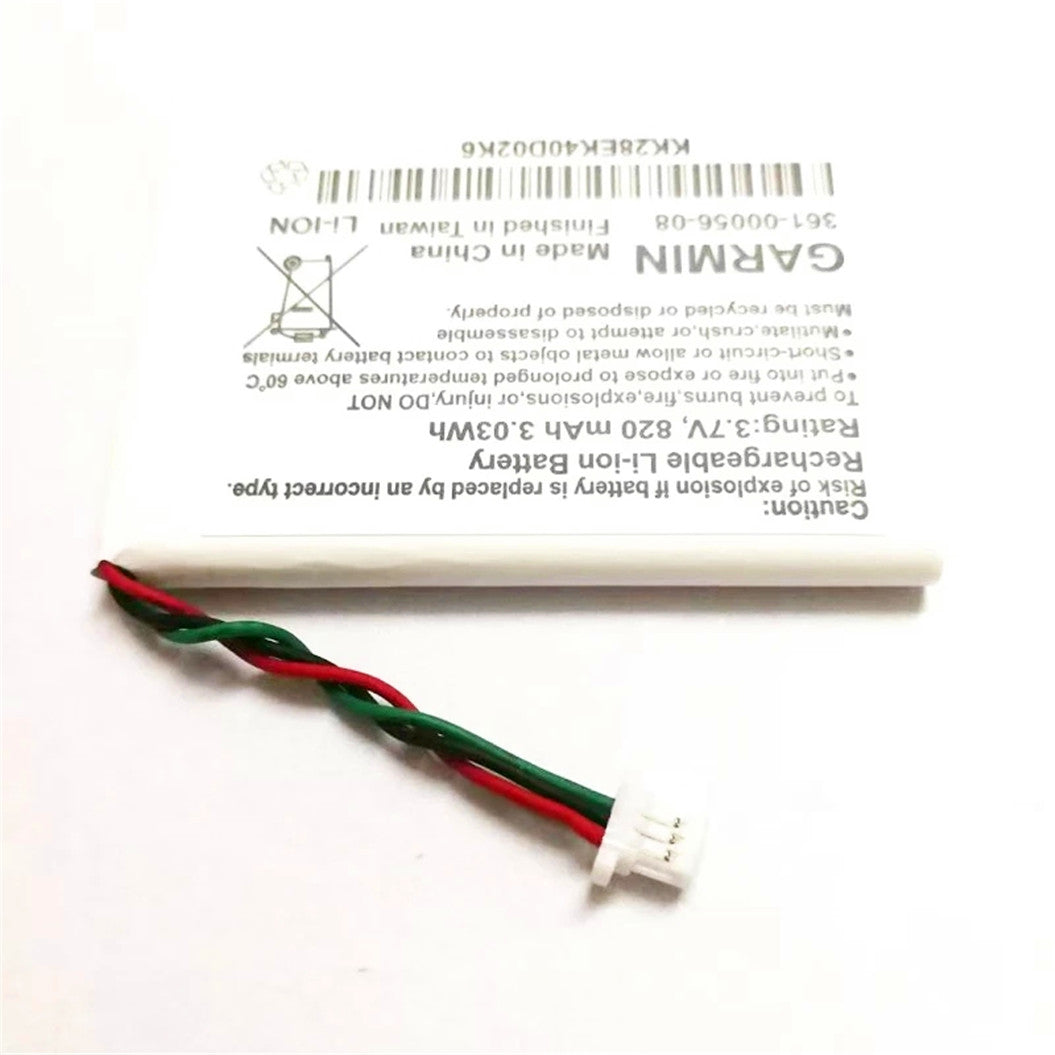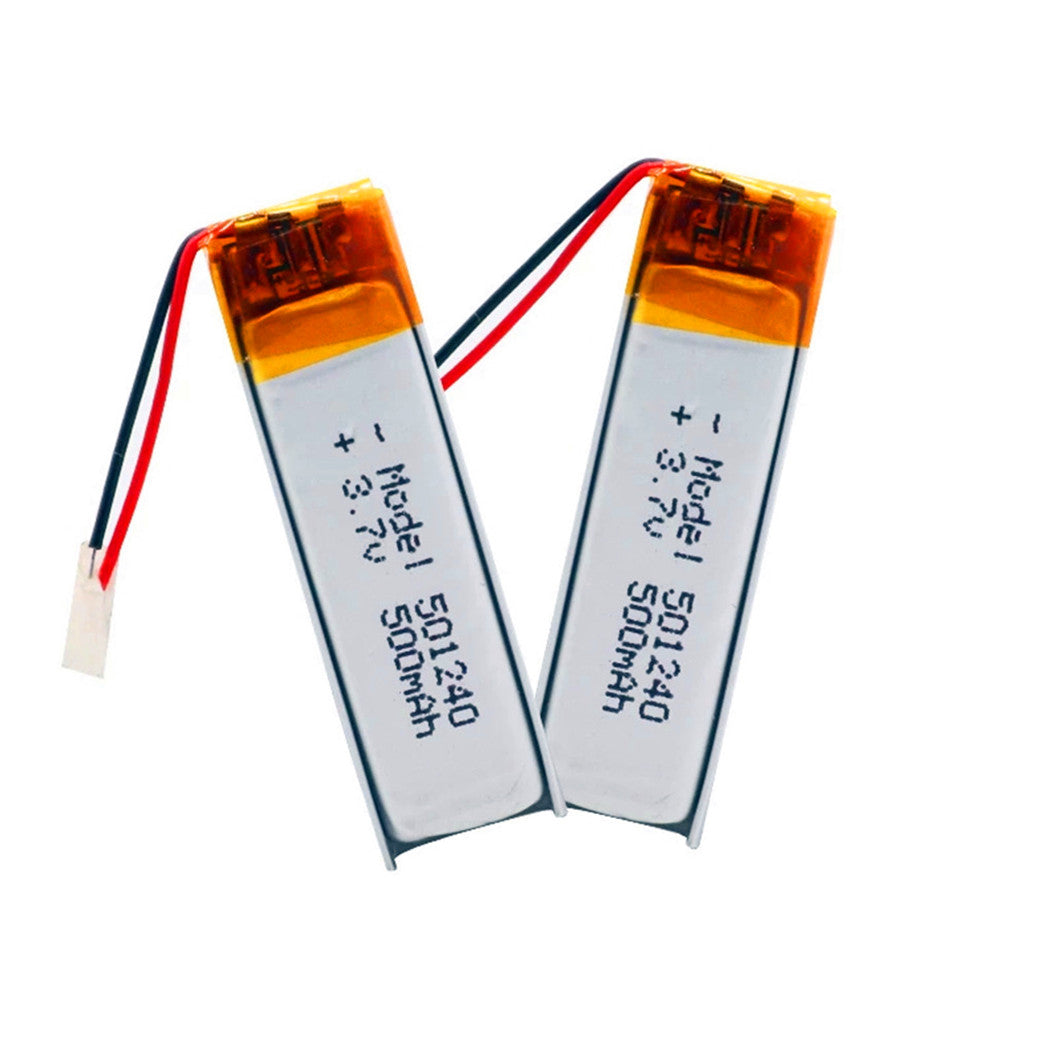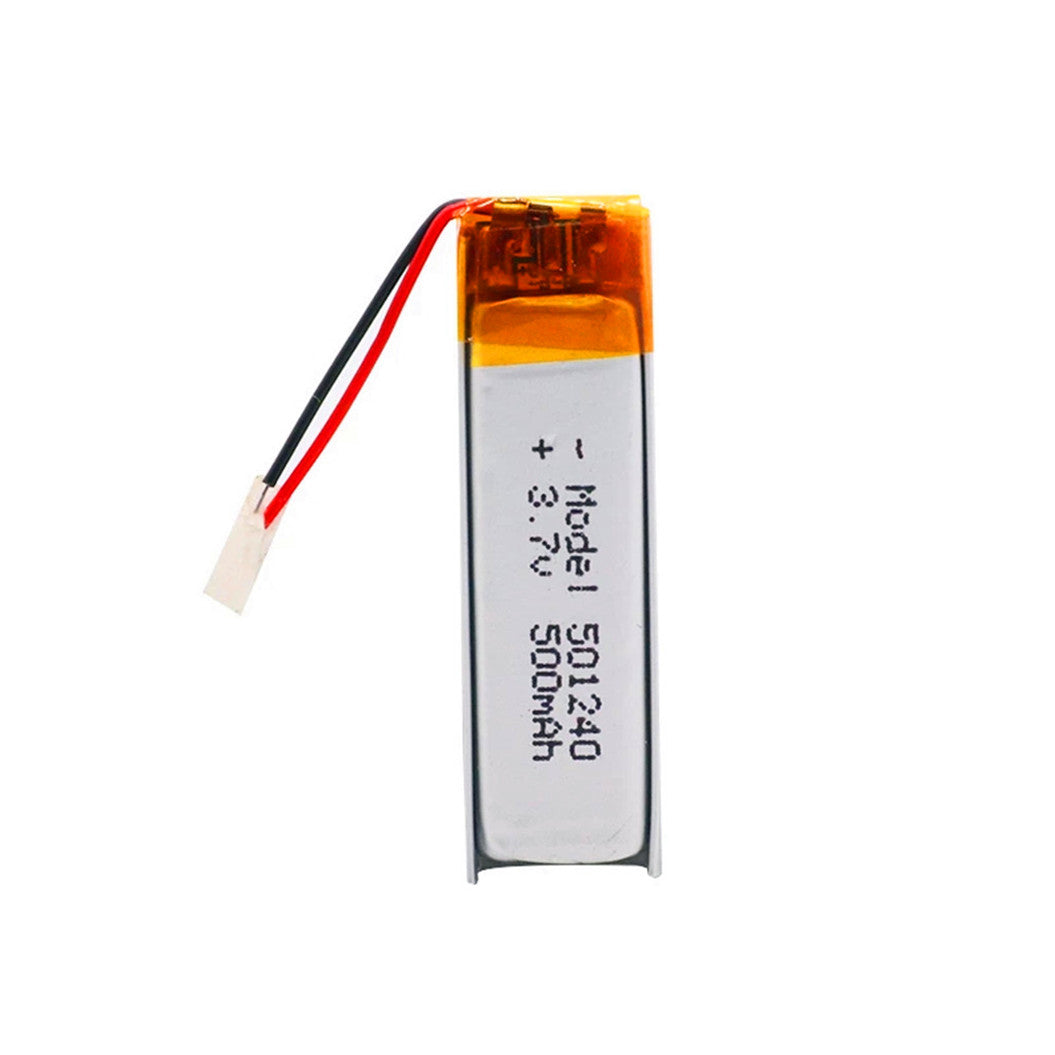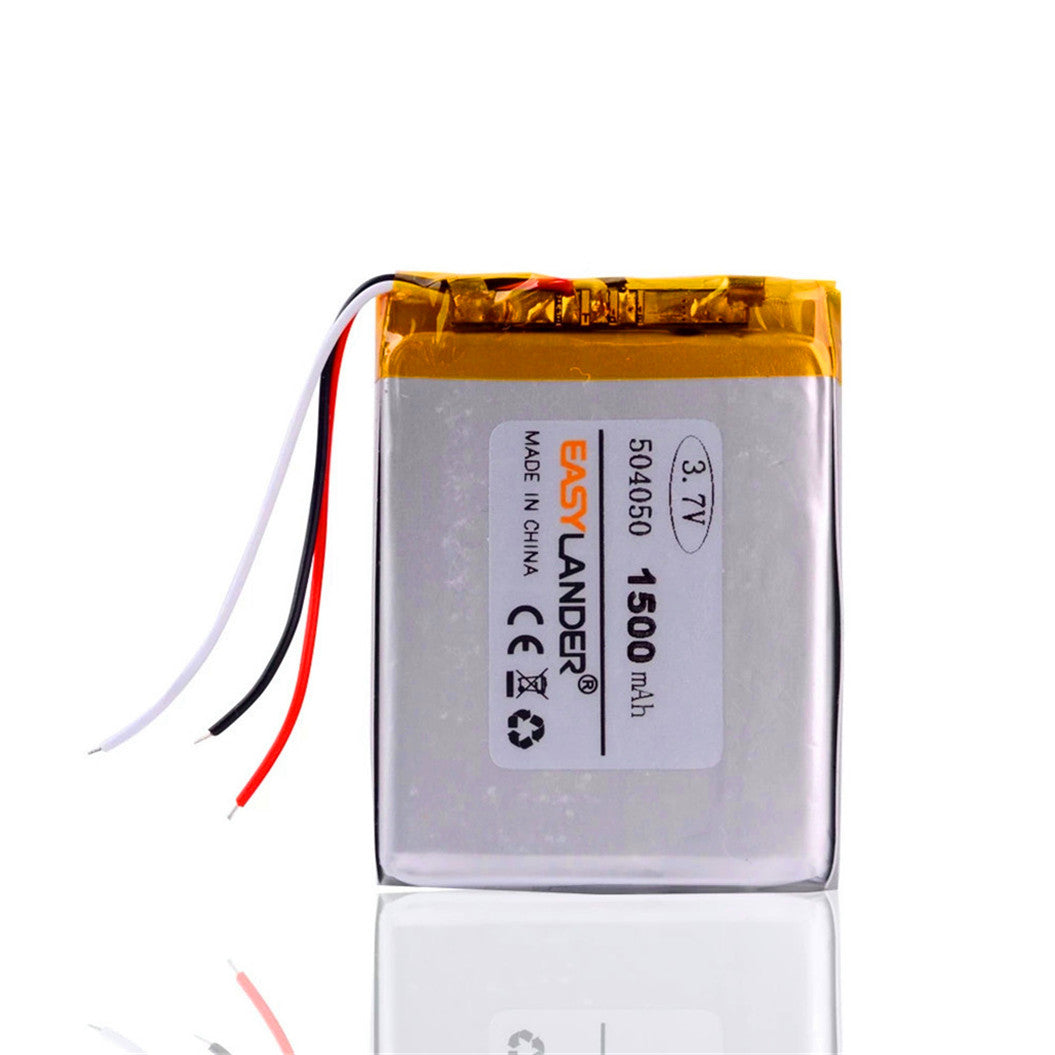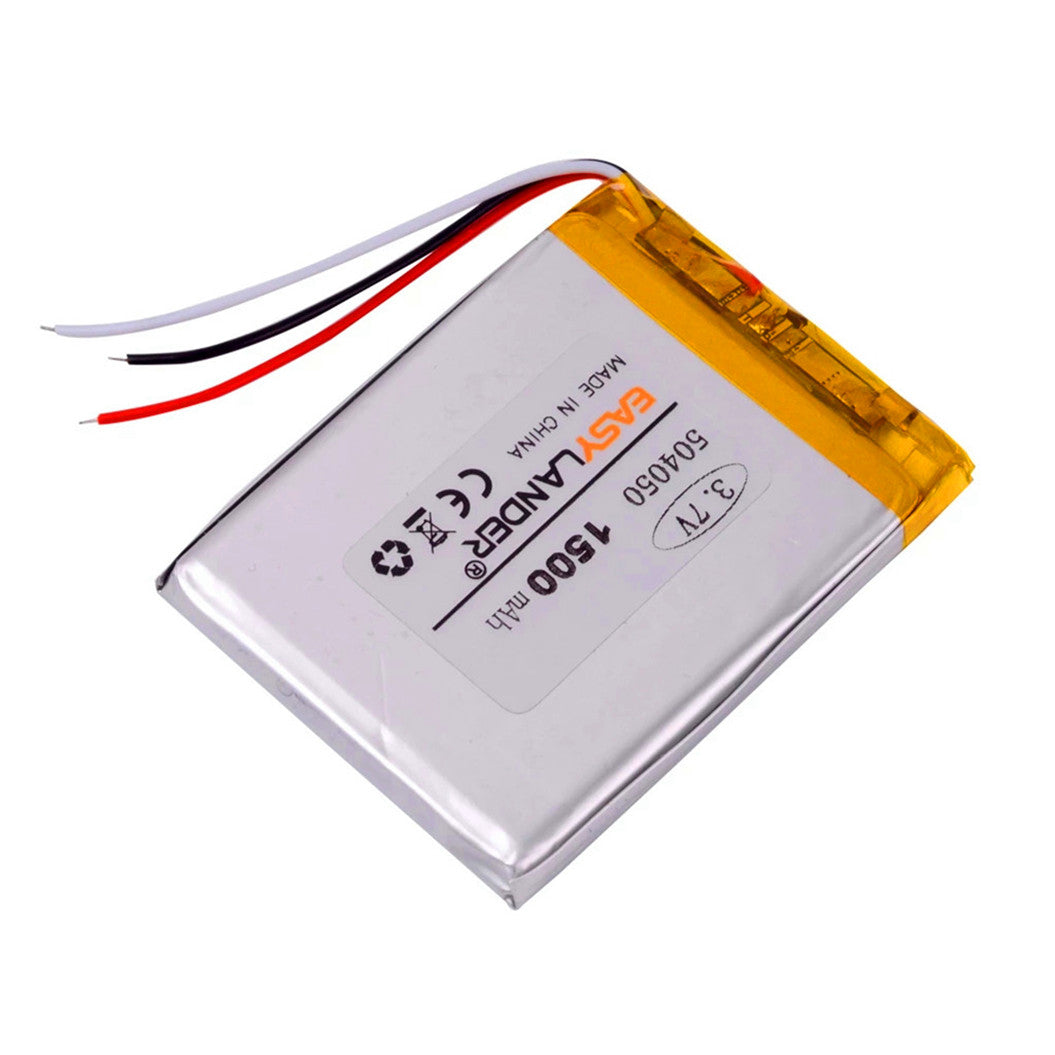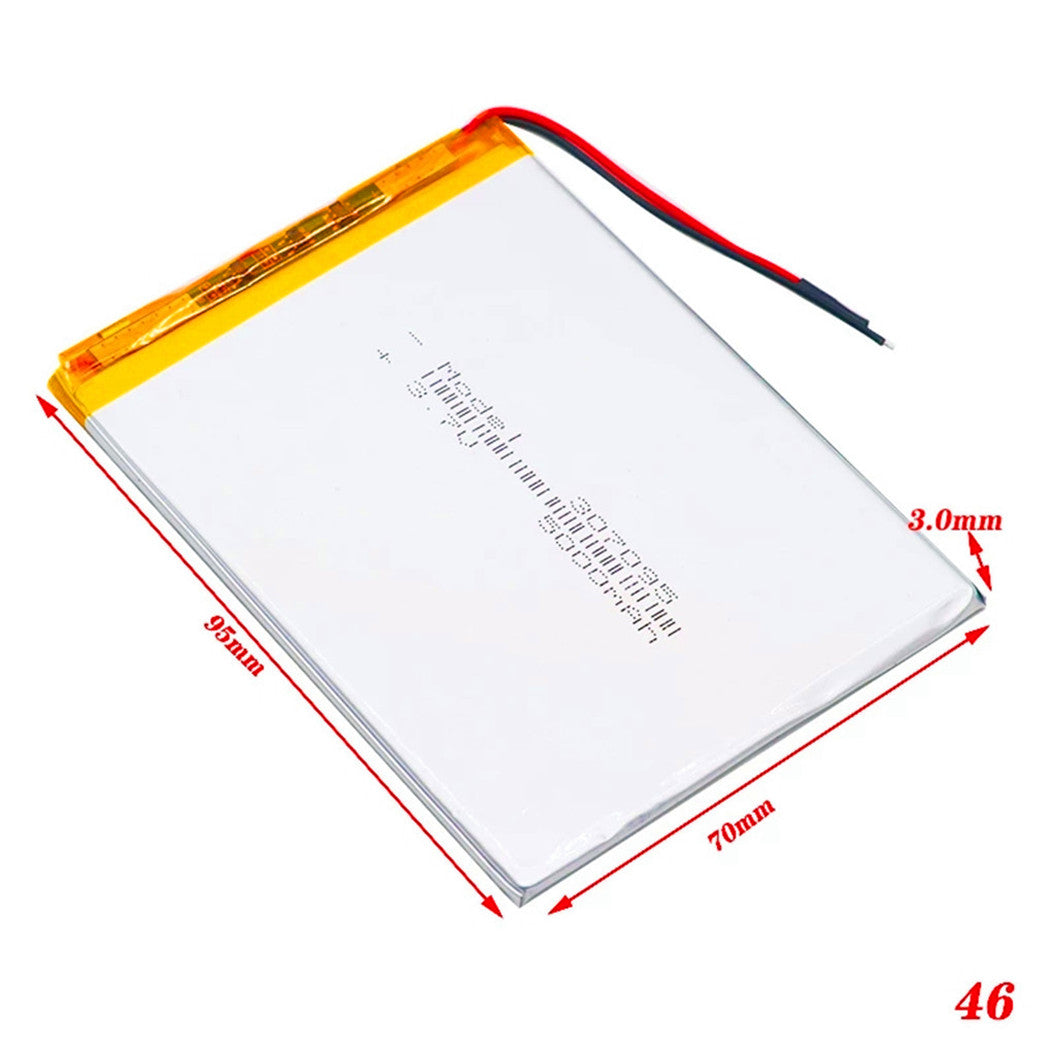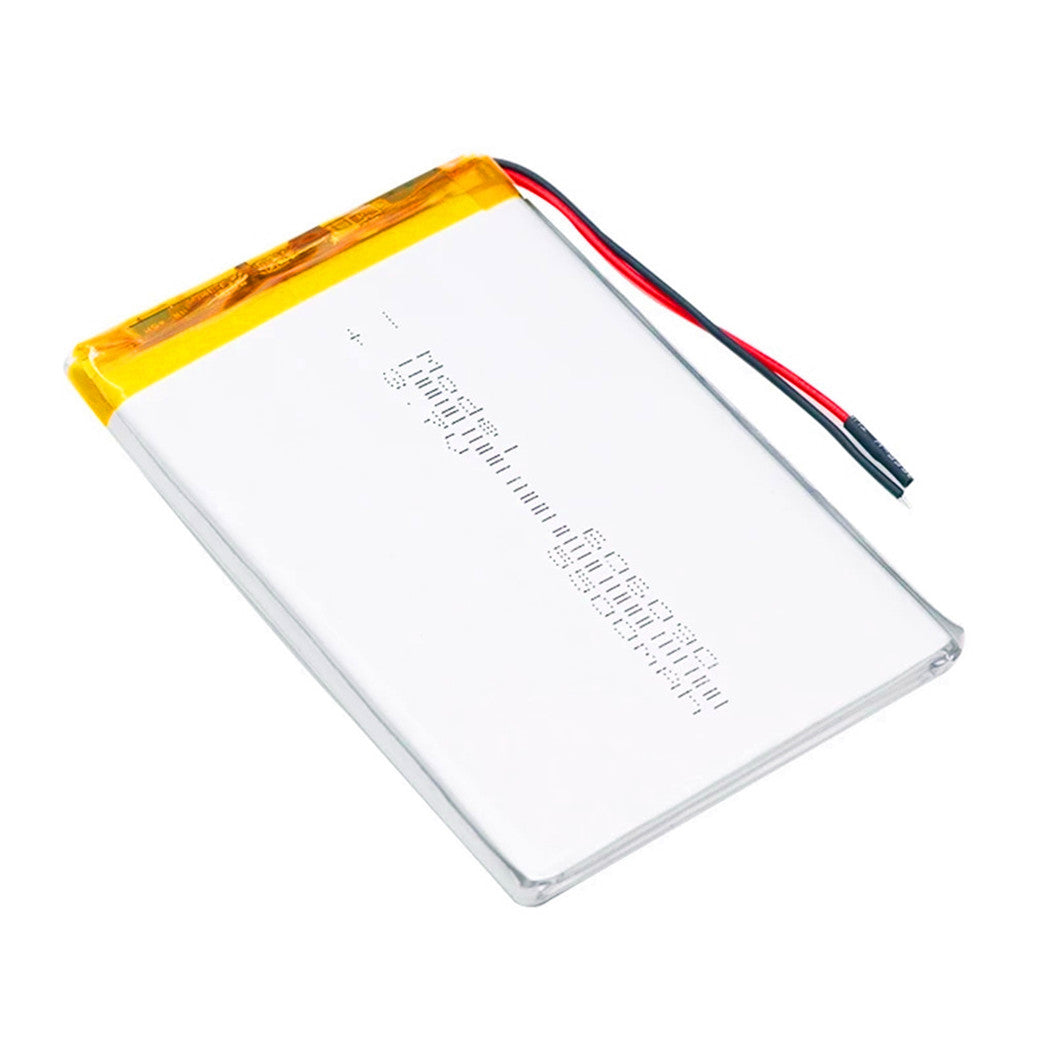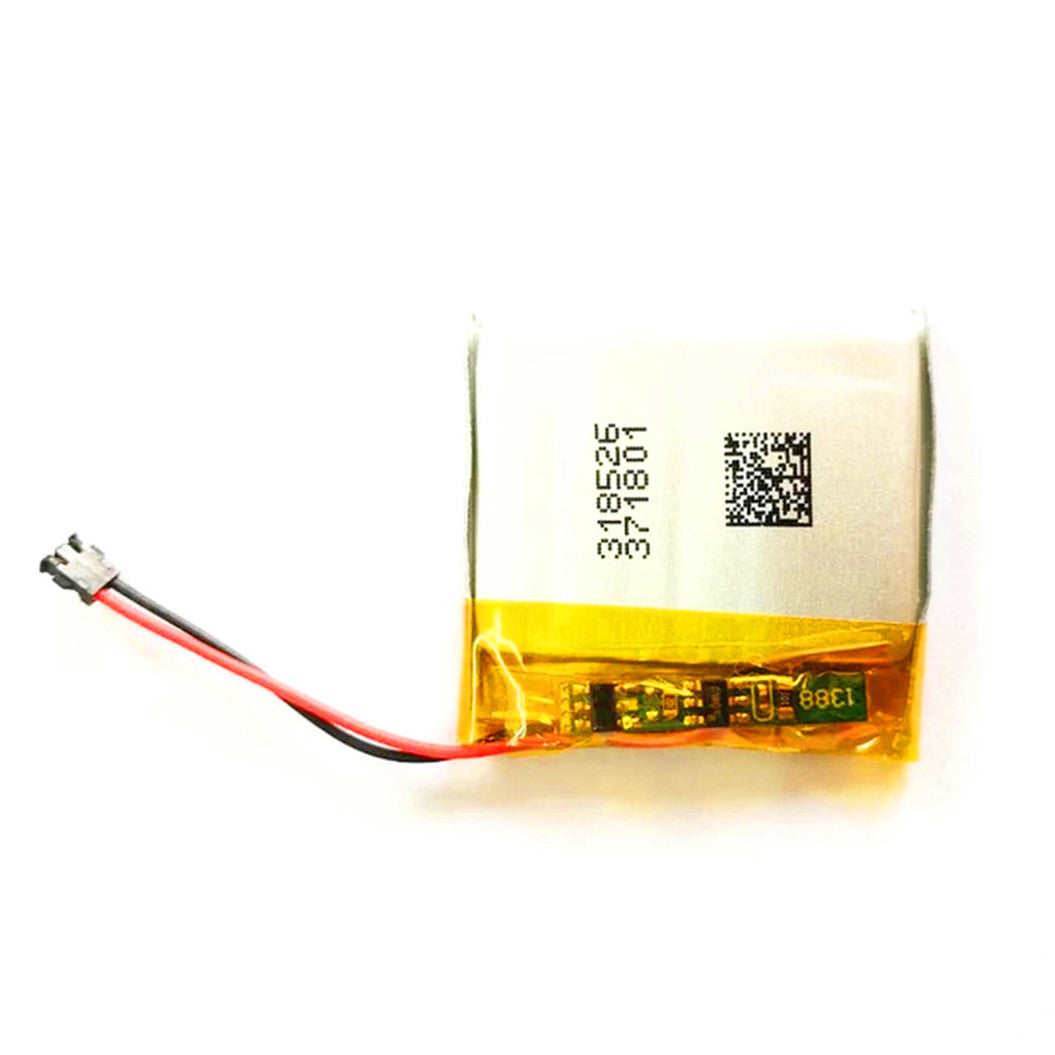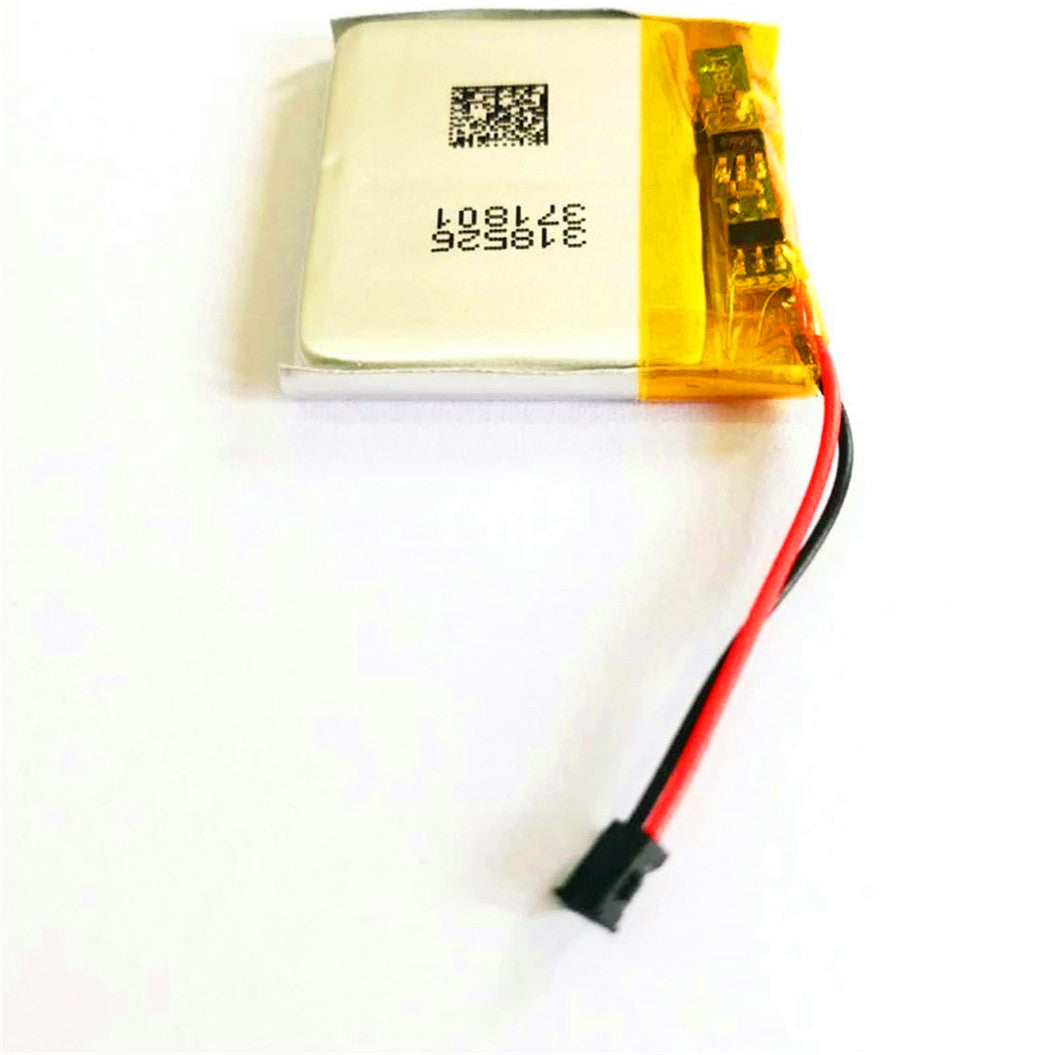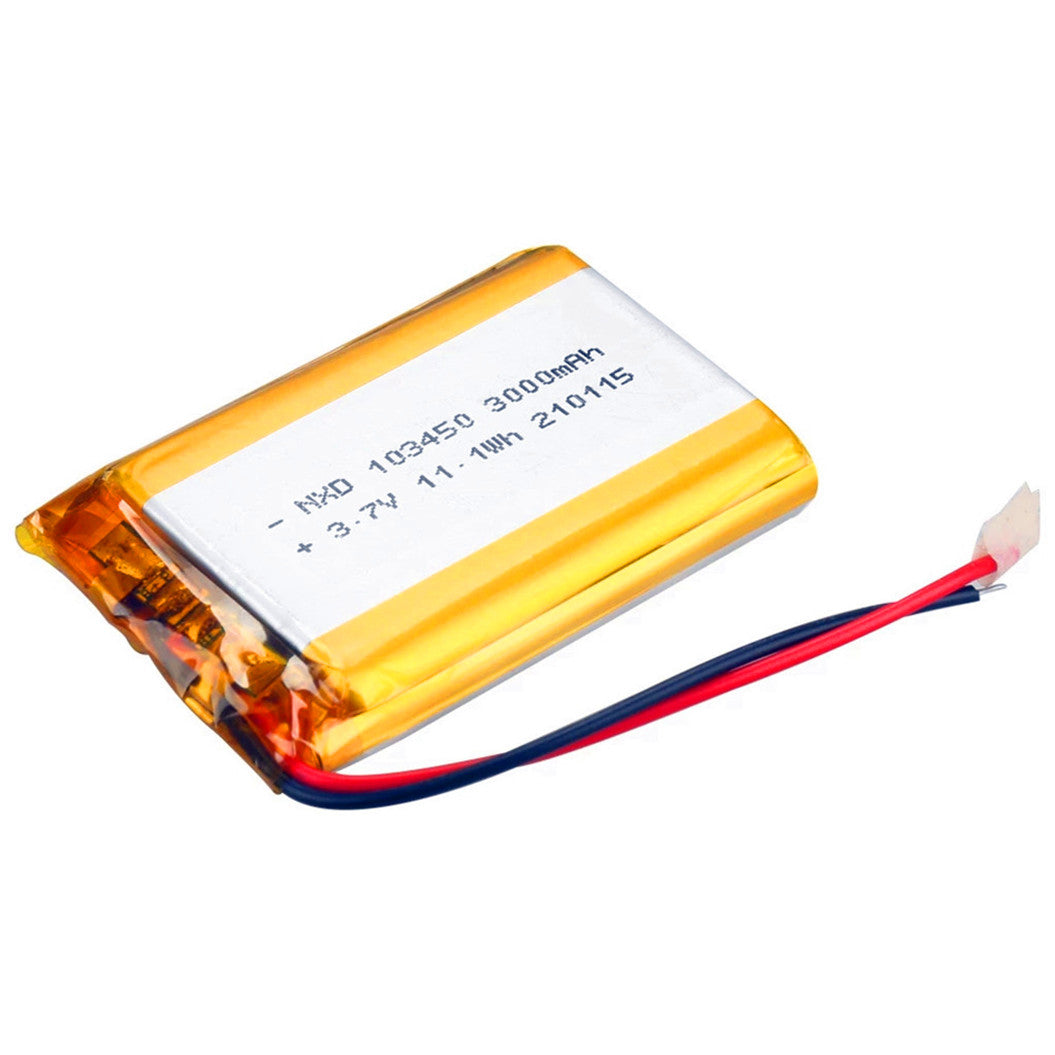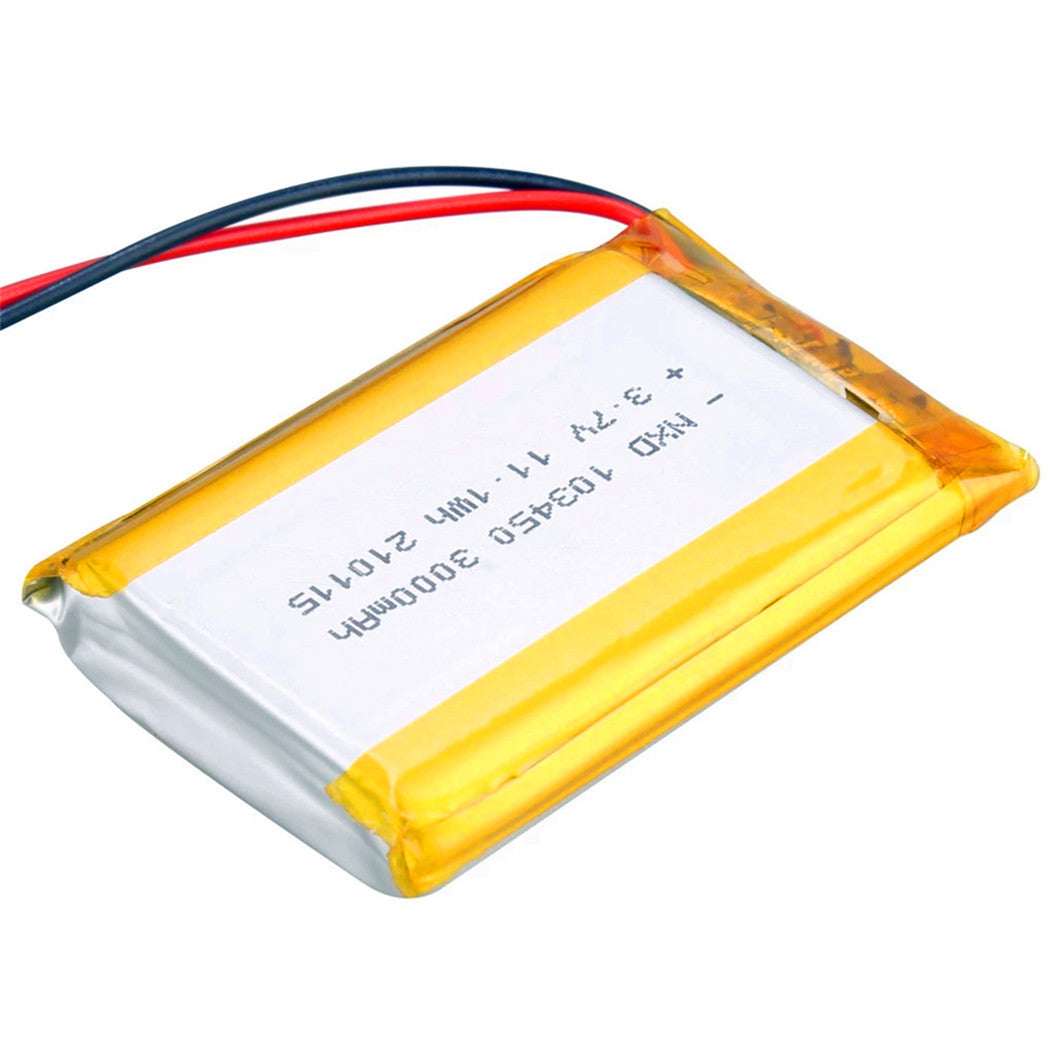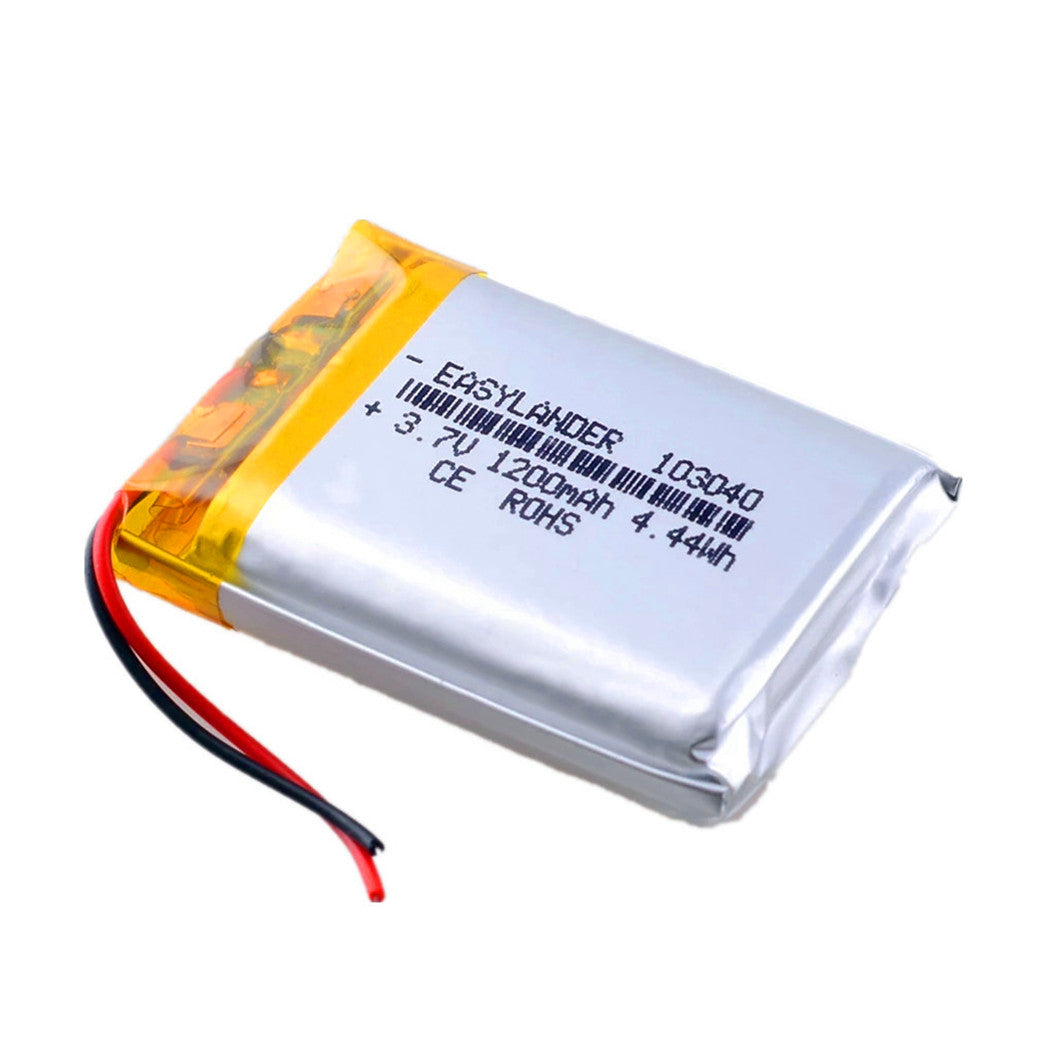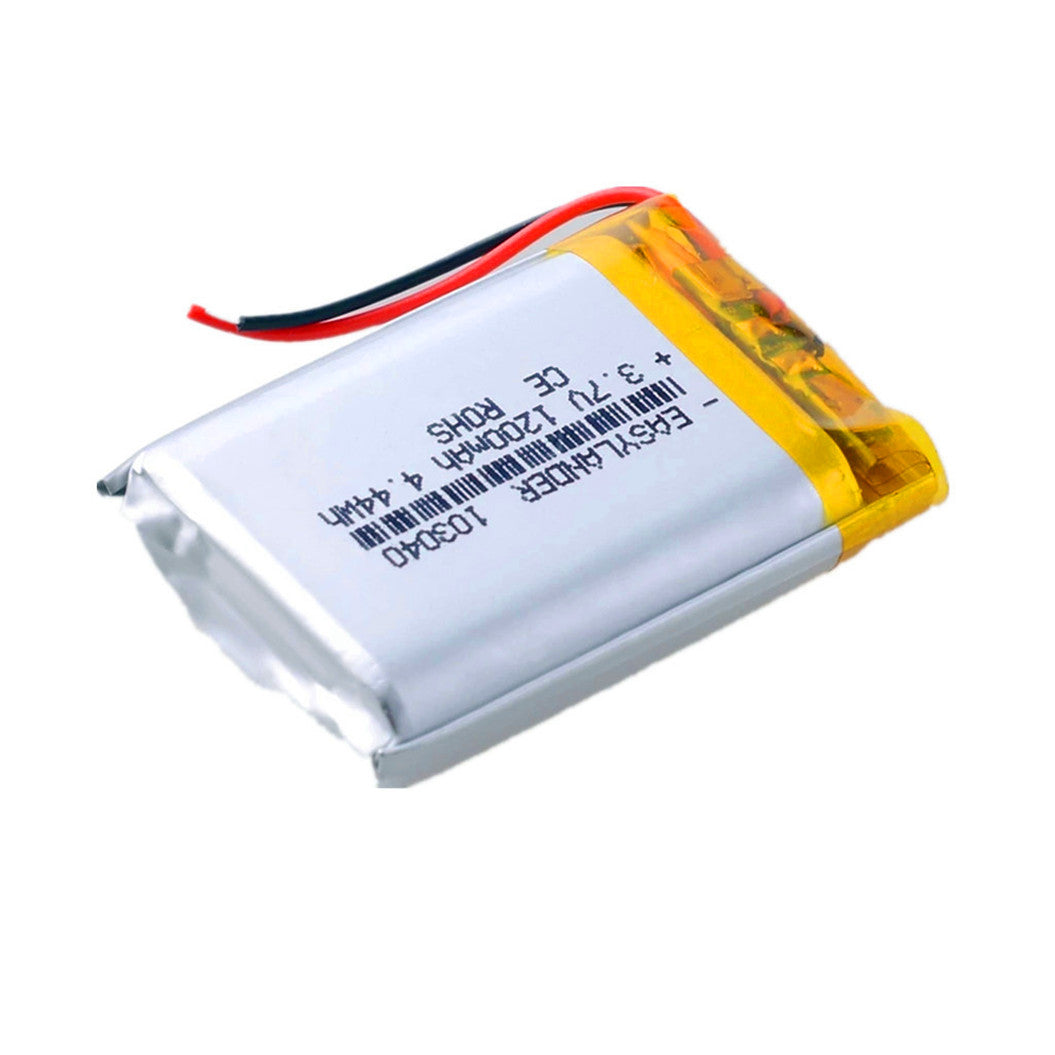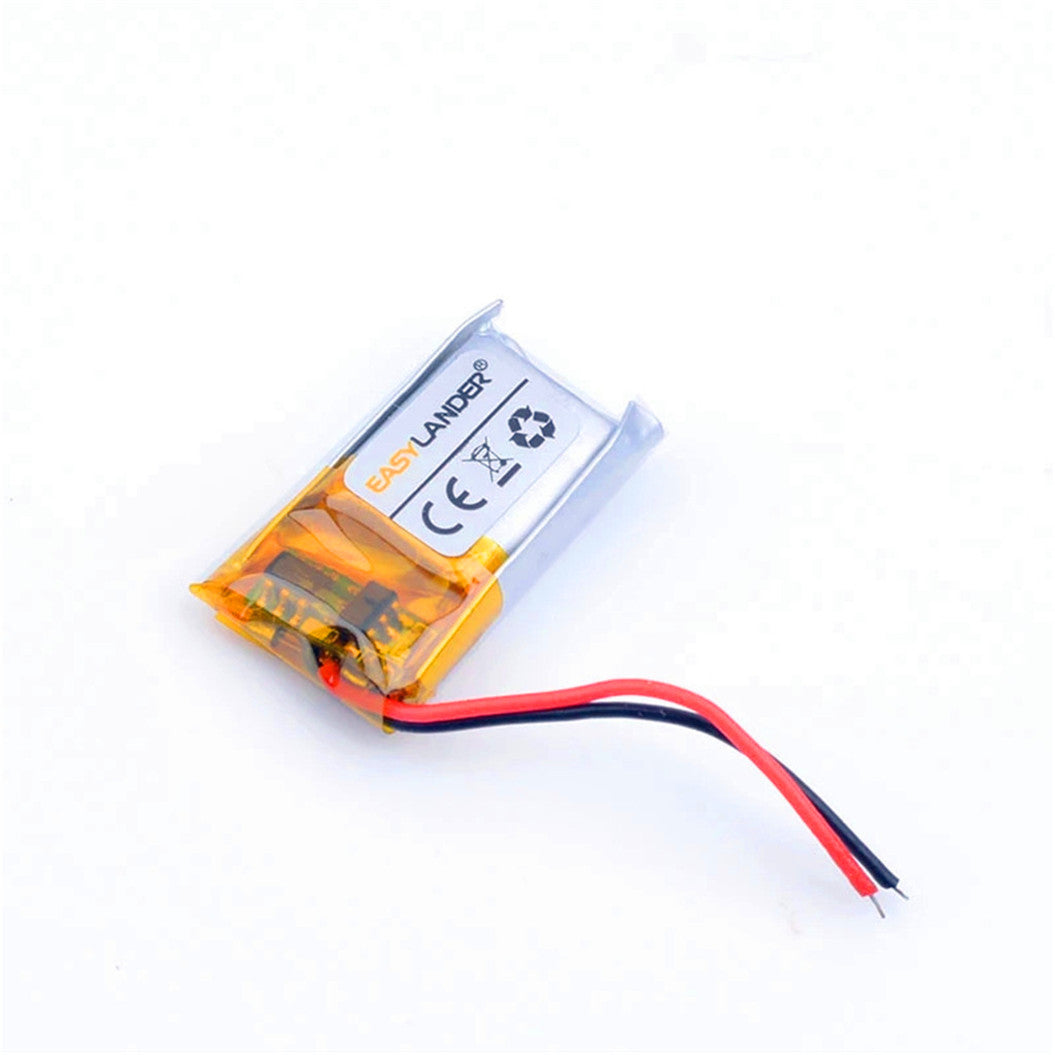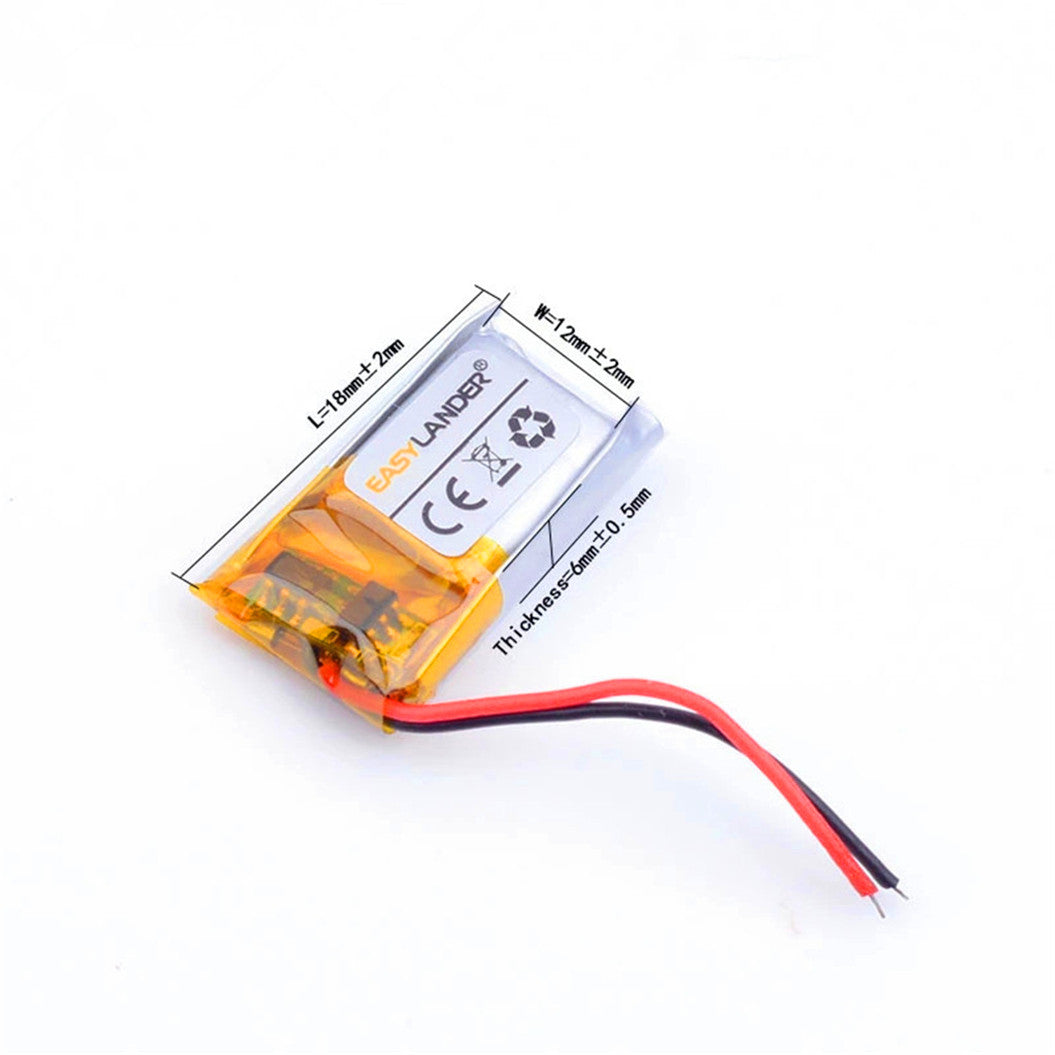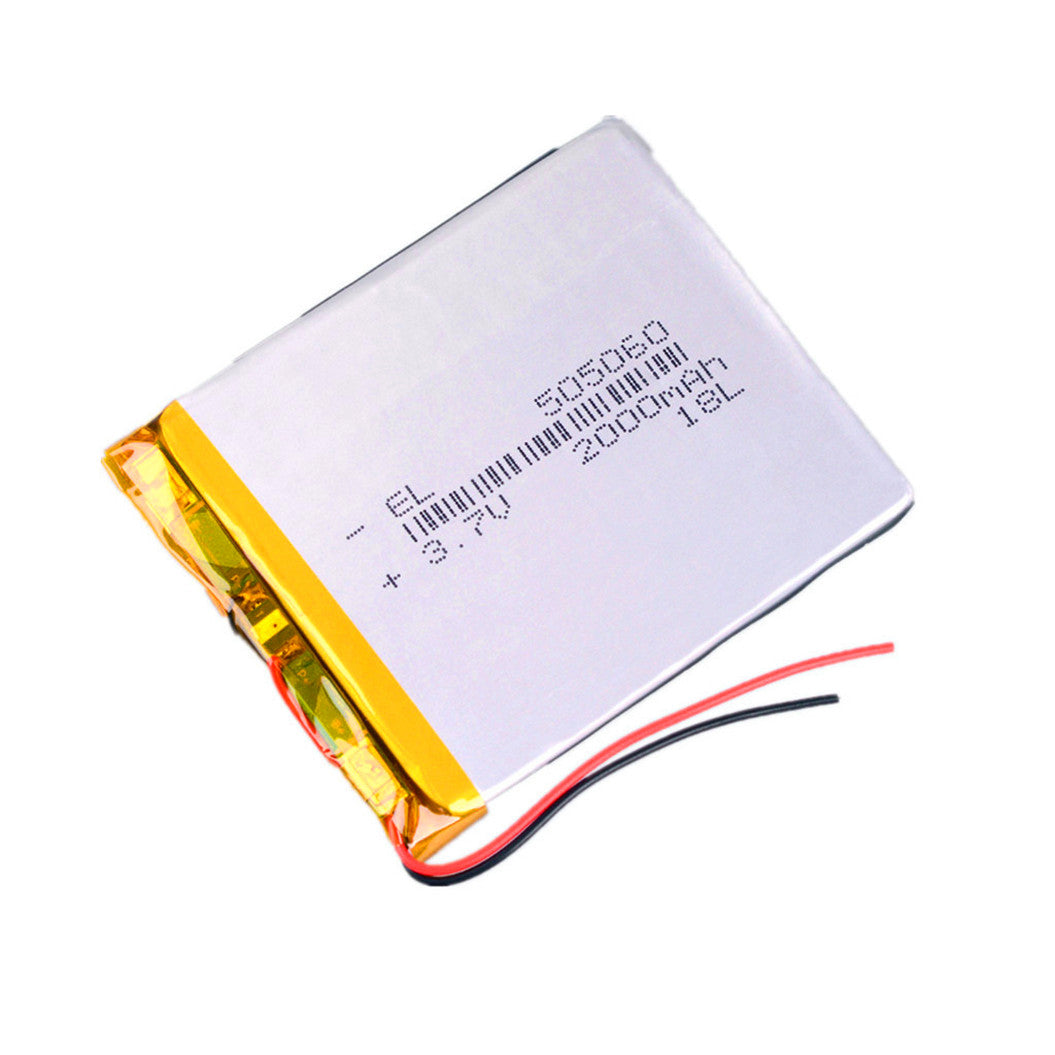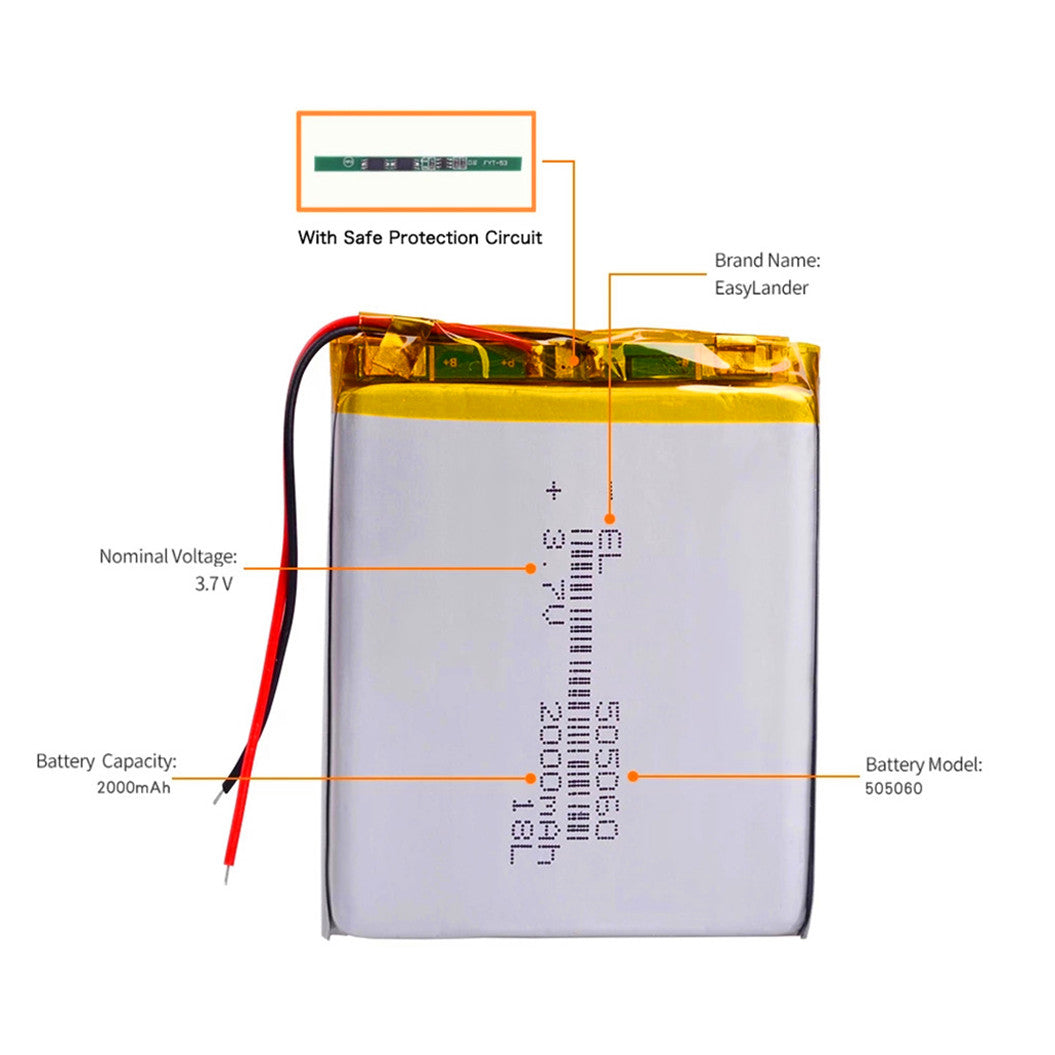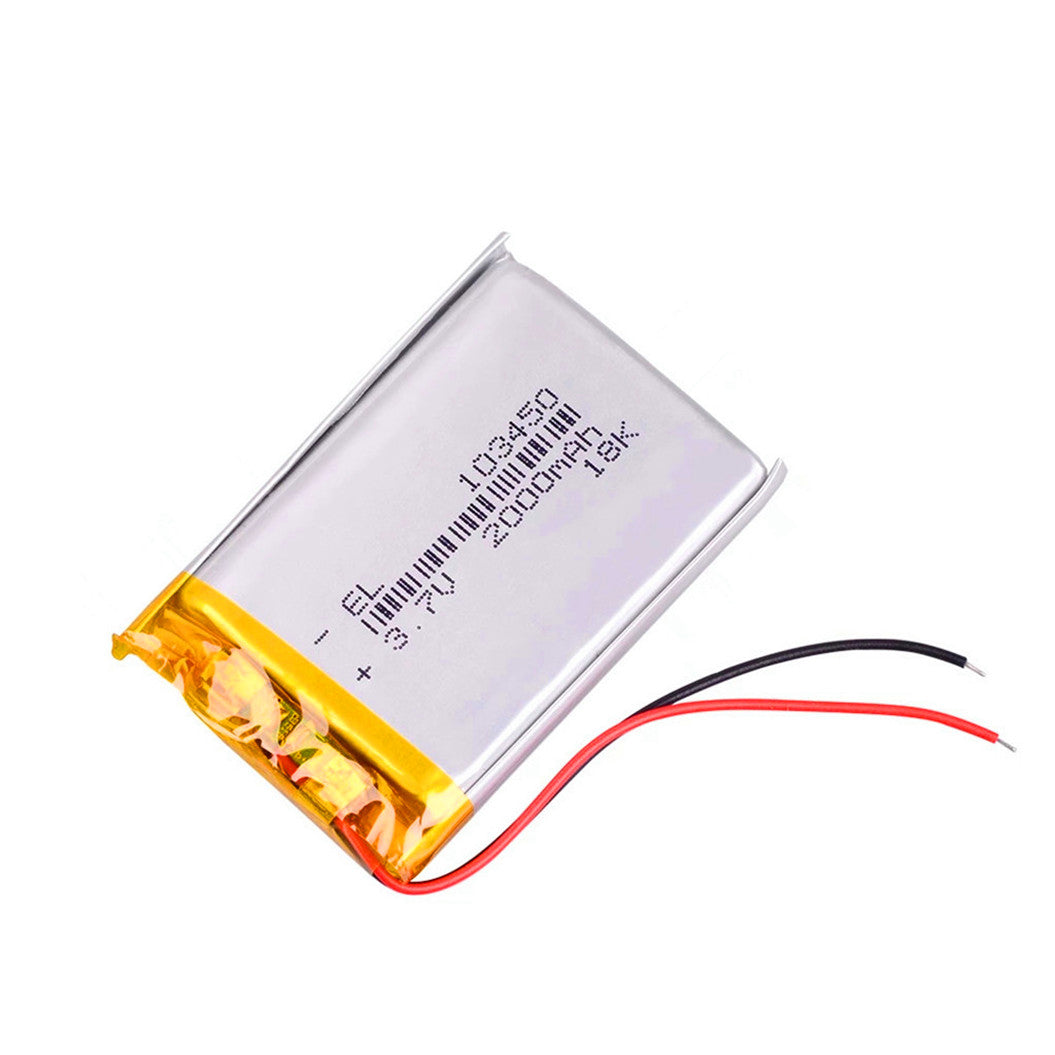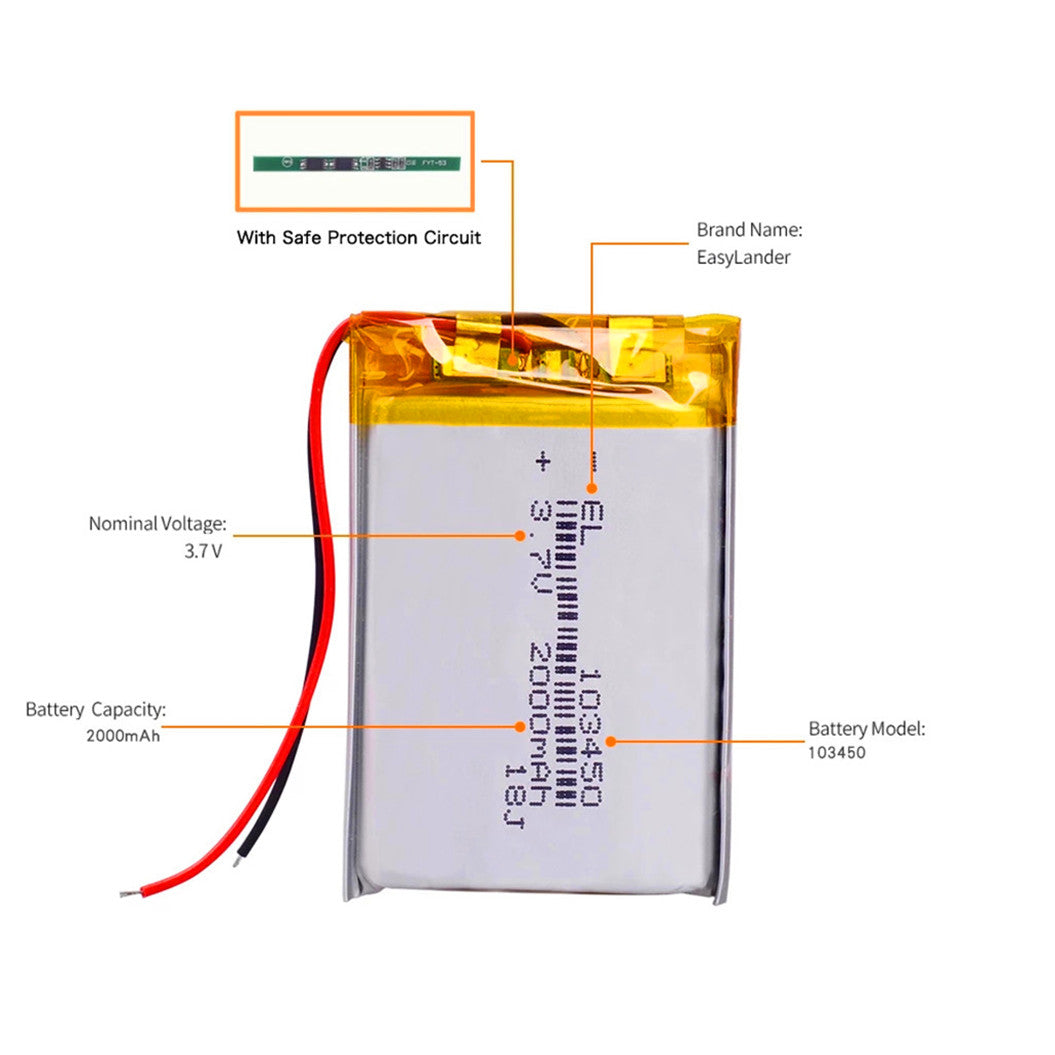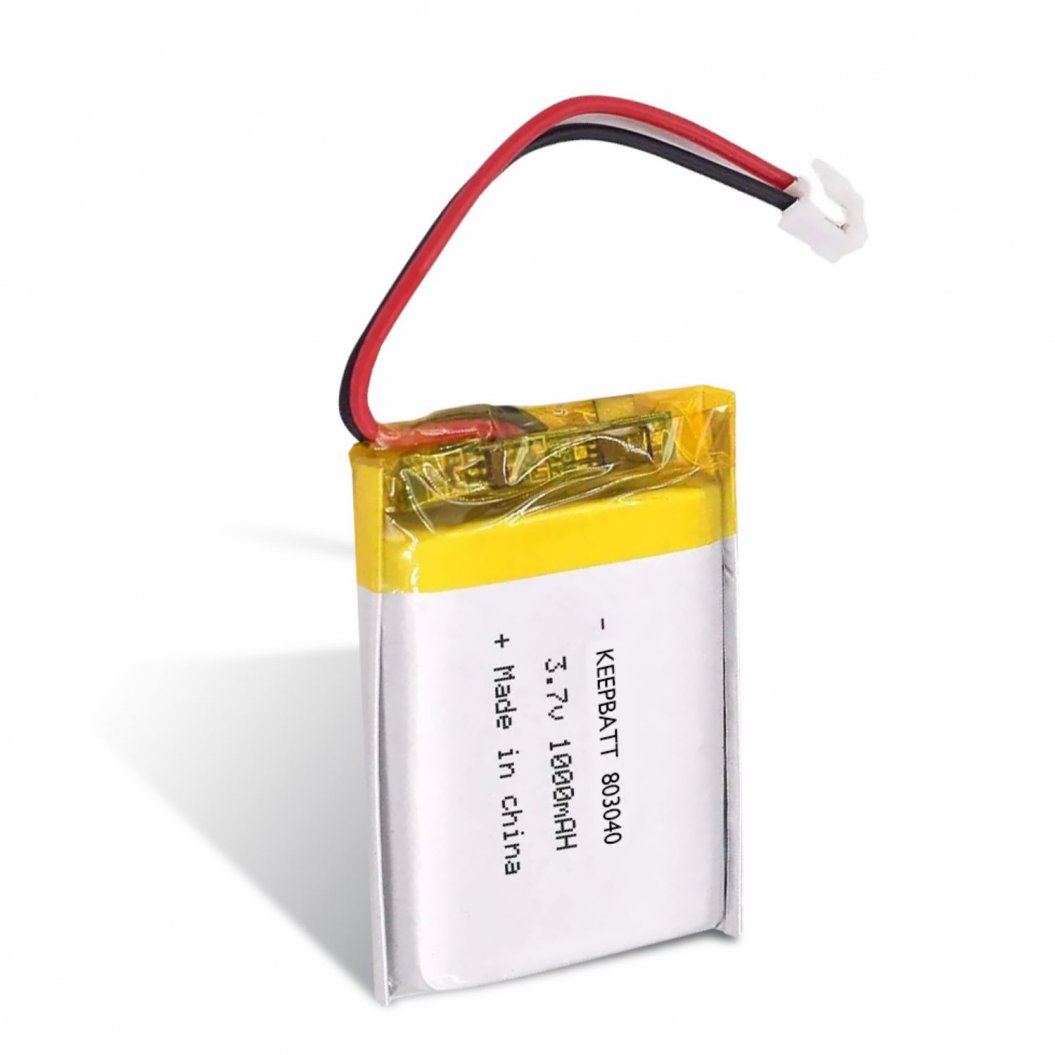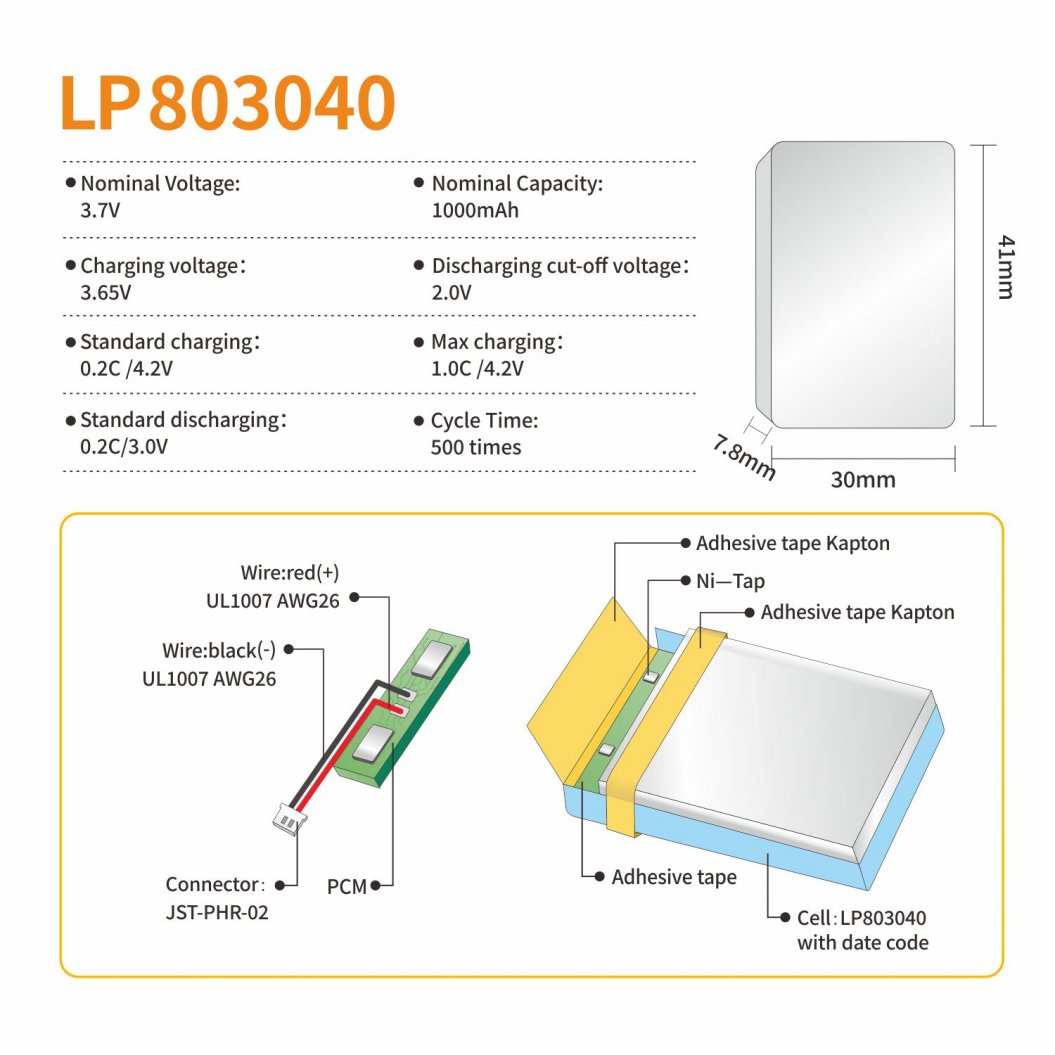-
공급업체:BATTERYINT
3.7V 820mAh 361-00056-08 교체 배터리 Garmin Drive 60LM GPS용 3-선 플러그+도구 포함
- 정가
- $23.29
- 정가
-
- 할인가
- $23.29
- 단가
- 단위
3.7V 820mAh 361-00056-08 교체 배터리 Garmin Drive 60... -
공급업체:BATTERYINT
4개입 3.7V 300mAh 501240 리튬 폴리머 배터리 GPS 블루투스 헤드셋 MP3 MP4
- 정가
- $9.99
- 정가
-
- 할인가
- $9.99
- 단가
- 단위
4개입 3.7V 300mAh 501240 리튬 폴리머 배터리 GPS 블루투스 헤드셋 ... -
공급업체:BATTERYINT
504050 3.7V 3-와이어 1500mAh 폴리머 리튬 배터리 GPS, MP3, MP4, 휴대폰, 내비게이터, DVR, 자동차용
- 정가
- $9.99
- 정가
-
- 할인가
- $9.99
- 단가
- 단위
504050 3.7V 3-와이어 1500mAh 폴리머 리튬 배터리 GPS, MP3, ... -
공급업체:BATTERYINT
5000mAh 리튬 이온 307095 태블릿 ICOO 배터리 3.7V 리튬 폴리머 배터리
- 정가
- $7.99
- 정가
-
- 할인가
- $7.99
- 단가
- 단위
5000mAh 리튬 이온 307095 태블릿 ICOO 배터리 3.7V 리튬 폴리머 배... -
공급업체:BATTERYINT
2팩 충전식 606090 3.7V 5500mAh 리튬 폴리머 리튬 배터리 보호 PCB 충전 모듈 포함
- 정가
- $16.90
- 정가
-
- 할인가
- $16.90
- 단가
- 단위
2팩 충전식 606090 3.7V 5500mAh 리튬 폴리머 리튬 배터리 보호 PCB... -
공급업체:BATTERYINT
3.7V AHB332824HPS 배터리 TomTom Spark Cardio GPS 워치 배터리 2선 플러그 및 도구 포함
- 정가
- $9.99
- 정가
-
- 할인가
- $9.99
- 단가
- 단위
3.7V AHB332824HPS 배터리 TomTom Spark Cardio GPS 워... -
공급업체:BATTERYINT
3.7V 3000mAh 103450 폴리머 리튬 배터리 GPS MP5 블루투스 스피커 카메라용
- 정가
- $11.99
- 정가
-
- 할인가
- $11.99
- 단가
- 단위
3.7V 3000mAh 103450 폴리머 리튬 배터리 GPS MP5 블루투스 스피커... -
공급업체:BATTERYINT
3.7V 1200mAh 103040 폴리머 리튬이온 배터리 MP3 플레이어 VR DVR MP4 MP5용
- 정가
- $10.99
- 정가
-
- 할인가
- $10.99
- 단가
- 단위
3.7V 1200mAh 103040 폴리머 리튬이온 배터리 MP3 플레이어 VR DV... -
공급업체:BATTERYINT
601218 3.7V 90mAh 배터리 블루투스 헤드셋, 장난감, MP3, MP4, 3D 안경, 스마트 팔찌용
- 정가
- $8.99
- 정가
-
- 할인가
- $8.99
- 단가
- 단위
601218 3.7V 90mAh 배터리 블루투스 헤드셋, 장난감, MP3, MP4, ... -
공급업체:BATTERYINT
3.7V 2000mAh 505060 리튬 배터리 인터컴, 블루투스 스피커, PDA, POS, GPSPOS용
- 정가
- $10.99
- 정가
-
- 할인가
- $10.99
- 단가
- 단위
3.7V 2000mAh 505060 리튬 배터리 인터컴, 블루투스 스피커, PDA, ... -
공급업체:BATTERYINT
3.7V 2000mAh 103450 리튬 폴리머 배터리 내비게이터, DVR, GPS, 카메라용
- 정가
- $10.99
- 정가
-
- 할인가
- $10.99
- 단가
- 단위
3.7V 2000mAh 103450 리튬 폴리머 배터리 내비게이터, DVR, GPS,... -
공급업체:BATTERYINT
KB-LP 803040 리튬 폴리머 배터리 3.7V 1000mAh GPS용 충전식 배터리
- 정가
- $10.95
- 정가
-
- 할인가
- $10.95
- 단가
- 단위
KB-LP 803040 리튬 폴리머 배터리 3.7V 1000mAh GPS용 충전식 배...
표시 1 -12 의 33 항목
1. GPS 배터리 팩은 완충 시 얼마나 오래 지속됩니까?
GPS 배터리 팩의 완전 충전 수명은 기기와 설정에 따라 달라지며, 대부분의 최신 GPS 장치는 4~12시간 동안 지속됩니다. 화면 밝기를 줄이거나 불필요한 기능을 끄는 것과 같은 절전 기능은 GPS 배터리 팩의 수명을 연장할 수 있습니다. 일부 기기는 또한 여분의 GPS 배터리 팩과 같은 백업 옵션을 제공하여 장시간 여행 중에도 계속 사용할 수 있도록 합니다.
2. GPS 또는 내비게이터 장치의 배터리를 교체할 수 있나요?
네, 많은 GPS 및 내비게이터 기기의 배터리를 교체할 수 있습니다. 기기에 분리형 GPS 배터리 팩 또는 내비게이터 배터리가 있는 경우, 오래된 배터리를 새 배터리로 바꾸는 것은 간단한 과정입니다. GPS 배터리 팩이나 내비게이션 배터리를 사용하는 기기와 같이 내장형 배터리가 있는 기기의 경우 배터리를 교체하려면 전문가의 도움이 필요할 수 있습니다. 항상 사용 설명서를 확인하여 호환성과 교체 절차를 확인하세요.
3. GPS 또는 내비게이터 장치의 배터리 수명을 늘리려면 어떻게 해야 하나요?
GPS 배터리 팩이나 내비게이터 배터리의 수명을 연장하려면 화면 밝기를 낮추고, 불필요한 기능을 비활성화하고, 에너지 절약 모드를 사용할 수 있습니다. 또한, 사용하지 않을 때 기기를 끄고 최신 상태로 유지하면 GPS 배터리 팩과 내비게이션 배터리의 성능을 최적화하는 데 도움이 됩니다. 이러한 작은 조정으로 배터리 수명과 전반적인 기기 효율성을 크게 높일 수 있습니다.
4. GPS 배터리가 너무 빨리 소모되면 어떻게 해야 하나요?
GPS 배터리가 너무 빨리 소모되면 소프트웨어 업데이트를 확인하고 Bluetooth와 같은 전력 소모 기능을 비활성화하여 GPS 배터리 팩 또는 내비게이션 배터리가 제대로 작동하는지 확인하세요. 때로는 GPS 배터리 팩이 수명이 다하여 교체해야 할 수도 있습니다. 기기를 깨끗하게 유지하고 원래 충전기를 사용하면 GPS 배터리 팩의 상태를 유지하는 데 도움이 됩니다.
5. GPS 또는 내비게이터 배터리는 얼마나 자주 충전해야 합니까?
GPS 배터리 팩이나 내비게이터 배터리는 매번 사용하거나 배터리 수준이 30% 미만으로 떨어지면 충전하는 것이 가장 좋습니다. 대부분 GPS 장치에 있는 리튬 이온 배터리는 완전히 방전되는 것보다 부분적으로 충전하는 것이 좋습니다. 드물게 사용하는 GPS 배터리 팩이나 내비게이션 배터리의 경우 배터리 수준을 매달 확인하여 배터리 상태가 양호하고 비활성으로 인해 저하되지 않는지 확인하십시오.
6. 이동 중에 GPS 장치를 충전하기 위해 모바일 충전기를 사용해도 안전할까요?
네, GPS 배터리 팩의 전압 요구 사항을 충족하는 한 파워 뱅크를 사용하여 GPS 장치를 안전하게 충전할 수 있습니다. 파워 뱅크는 전원 콘센트를 사용할 수 없는 장거리 여행이나 야외 활동 중에 GPS 배터리 팩을 충전하는 데 편리한 도구입니다. 이는 전원에 대한 접근이 제한될 수 있는 외딴 지역에서 내비게이터 배터리가 충전 상태를 유지하는 데 특히 유용합니다.
7. 극한 기온이 GPS 또는 내비게이터 배터리에 영향을 미칠 수 있나요?
예, 극한의 온도는 GPS 배터리 팩 또는 내비게이터 배터리의 성능에 상당한 영향을 미칠 수 있습니다. 추운 날씨는 GPS 배터리 팩의 용량을 줄일 수 있고, 높은 열은 배터리 부풀기 또는 장기적 손상으로 이어질 수 있습니다. 최적의 성능과 수명을 보장하기 위해 내비게이션 배터리와 GPS 배터리 팩을 제조업체의 권장 온도 범위 내에서 유지하는 것이 중요합니다.
8. 대부분의 GPS 및 내비게이터 장치에는 어떤 유형의 배터리가 사용됩니까?
대부분의 GPS 및 내비게이터 장치는 내장형이든 GPS 배터리 팩의 일부이든 리튬 이온 배터리를 사용합니다. 이러한 배터리는 가볍고 에너지 효율적인 특성으로 선호됩니다. GPS 배터리팩 또는 내비게이션 배터리는 일반적으로 용량이 감소하기 시작하기 전에 수백 번의 충전 주기를 견딜 수 있으므로 GPS 장치 및 내비게이터와 같은 휴대용 장치에 신뢰할 수 있는 선택입니다.
9. 충전하는 동안 GPS를 사용할 수 있나요?
네, 충전하는 동안 GPS를 사용할 수 있습니다. 벽면 콘센트나 모바일 배터리를 통해서요. 그러나 충전하는 동안 GPS 배터리 팩을 사용하면 추가 열이 발생하여 GPS 배터리 팩의 장기적 건강이 저하될 수 있습니다. 사용 중에 내비게이터 배터리나 GPS 배터리 팩이 과열되는 것을 발견하면 배터리를 교체하거나 충전하는 동안 더 보수적으로 사용하는 것을 고려해야 할 때일 수 있습니다.
10. GPS 또는 내비게이터 배터리를 교체해야 할 시기를 어떻게 알 수 있나요?
배터리 수명이 상당히 감소하거나, 충전이 어느 정도 되어도 기기가 갑자기 꺼지는 경우 GPS 배터리 팩이나 내비게이터 배터리를 교체해야 할 때입니다. 다른 징후로는 GPS 배터리 팩이 너무 빨리 충전을 잃거나 충전 중에 기기가 과열되는 경우가 있습니다. 이 단계에서 GPS 배터리 팩이나 내비게이터 배터리를 교체하면 기기의 기능을 복구할 수 있습니다.

